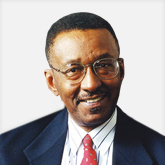
Last week, the Obama administration announced new curbs on racial profiling by federal law enforcement. Before deciding whether this is good or bad policy, we might try to develop a description/definition of racial profiling or any other kind of profiling.
A good definition of profiling in general is the use of an easily observed physical characteristic as a guess for some other, difficult-to-observe characteristic. The reason people profile is that information is costly and they seek methods to economize on information costs. One way to do that is through profiling.
Imagine a chief of police in a city where there has been a rash of automobile hubcap thefts and he's trying to capture the culprits. Should he have his officers stake out and investigate residents of senior citizen homes? What about spending resources investigating men and women 40 or older? I would imagine that he would have greater success in capturing the culprits by focusing most of his resources on younger people — and particularly on young men. Doing so would more likely lead to the capture of the culprits because hubcap theft is a young man's game. My question to you is whether you'd bring charges against the police chief because he used age and sex profiling — and didn't investigate seniors and middle-aged adults.
Some years ago, a Washington, D.C., taxicab commissioner, who is black, issued a safety advisory urging D.C.'s 6,800 predominantly black cabbies to refuse to pick up "dangerous looking" passengers. Cabbies in D.C. and other cities often bypass black males for fear of robbery or of being taken to an unsafe neighborhood. We seriously misunderstand the motives of a taxi driver who racially profiles and passes up a black customer if we use racism as the sole explanation for his behavior.
The reality is that race and other behavioral characteristics are correlated, including criminal behavior. That fact does not dispel the insult, embarrassment, anger and hurt a law-abiding black person might feel when being stopped by police, being watched in stores, being passed up by taxi drivers, standing at traffic lights and hearing car door locks activated, or being refused delivery by merchants who fear for their safety in his neighborhood. It is easy to direct one's anger at the taxi driver or the merchant. However, the behavior of taxi drivers and owners of pizza restaurants cannot be explained by a dislike of dollars from black hands. A better explanation is they might fear for their lives. The true villains, to whom anger should be directed, are the tiny percentage of people in the black community who prey on both blacks and whites and have made black synonymous with crime.
There's little-noticed racial profiling in medicine. Some racial and ethnic groups have a higher incidence of mortality from various diseases than the national average. Mortality rates for cardiovascular diseases are approximately 30 percent higher among black adults than among white adults. Cervical cancer rates are almost five times higher among Vietnamese women in the U.S. than among white women. The Pima Indians of Arizona have the highest known diabetes rate in the world. Prostate cancer is nearly twice as common among black men as it is among white men. Would one condemn a medical practitioner for advising greater screening and monitoring of black men for cardiovascular disease and prostate cancer or greater screening and monitoring for cervical cancer among Vietnamese-American women or the same for diabetes among Pima Indians? It surely would be racial profiling — using race as an indicator of a higher probability of some other characteristic.
God would never do profiling of any sort, because God is omniscient. We humans lack that quality and must depend upon sometimes-crude substitutes for finding out things. By the way, my attempting to explain profiling doesn't require one to take a position for or against it any more than the attempt to explain gravity requires one to be for or against gravity.
Comment by clicking here.
Dr. Walter Williams is an American economist, commentator, and academic. He is the John M. Olin Distinguished Professor of Economics at George Mason University, as well as a syndicated columnist and author known for his libertarian views.



 Contact The Editor
Contact The Editor
 Articles By This Author
Articles By This Author